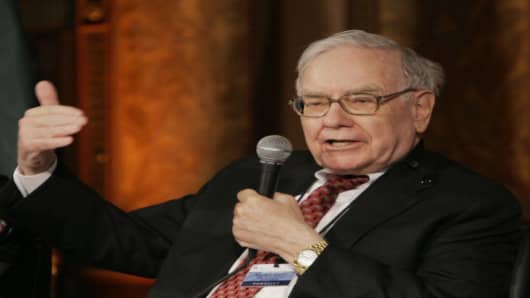A new study by two university professors titled "Imitation is the Sincerest Form of Flattery" proves what a lot of savvy investors have known for years: buying the stocks Warren Buffett buys will make you a lot of money.
But, contrary to the theory that the stock market instantly prices in all new information making it impossible for anyone to get a consistent "edge," the professors argue that not enough savvy investors are doing the "imitation" buying right away:
"The market ... appears to under-react to the news of a Berkshire stock investment since a hypothetical portfolio that mimics Berkshire's investments created the month after they are publicly disclosed earns positive abnormal returns of 14.26% per year.
Translation: Even if you bought the same stocks a month after Buffett and his holding company Berkshire Hathaway disclosed their own purchases, you'd still be way ahead of the game.
Where can you get information on what Buffett owns? Berkshire Hathaway files a report with the SEC every three months disclosing most of its portfolio holdings. The most recent was this week, when we learned that Berkshire had bought a stake in Carmax.
You can download the complete text of the study, with lots and lots of numbers, from the Social Science Research Network.
Gerald Martin of American University and John Puthenpurackal of the University of Nevada - Las Vegas also conclude that:
- Despite Buffett's fame as a "value" investor, Berkshire's style is "best characterized as large-cap growth."
- From 1976 to 2006, the average annual return of Berkshire's stock portfolio outperformed the S&P by 14.65%.
- Statistically it is "unlikely" that Berkshire's performance can be explained solely by "luck" or by taking large risks.
The bottom line: "Warren Buffett appears to possess investment skill. This result is consistent with findings in a number of recent papers .. that argue that investment skill is more prevalent than earlier papers indicate."
That is, contrary to the Efficient Market Theory, some people are simply better than others when it comes to picking stocks, and Buffett is one of them.



